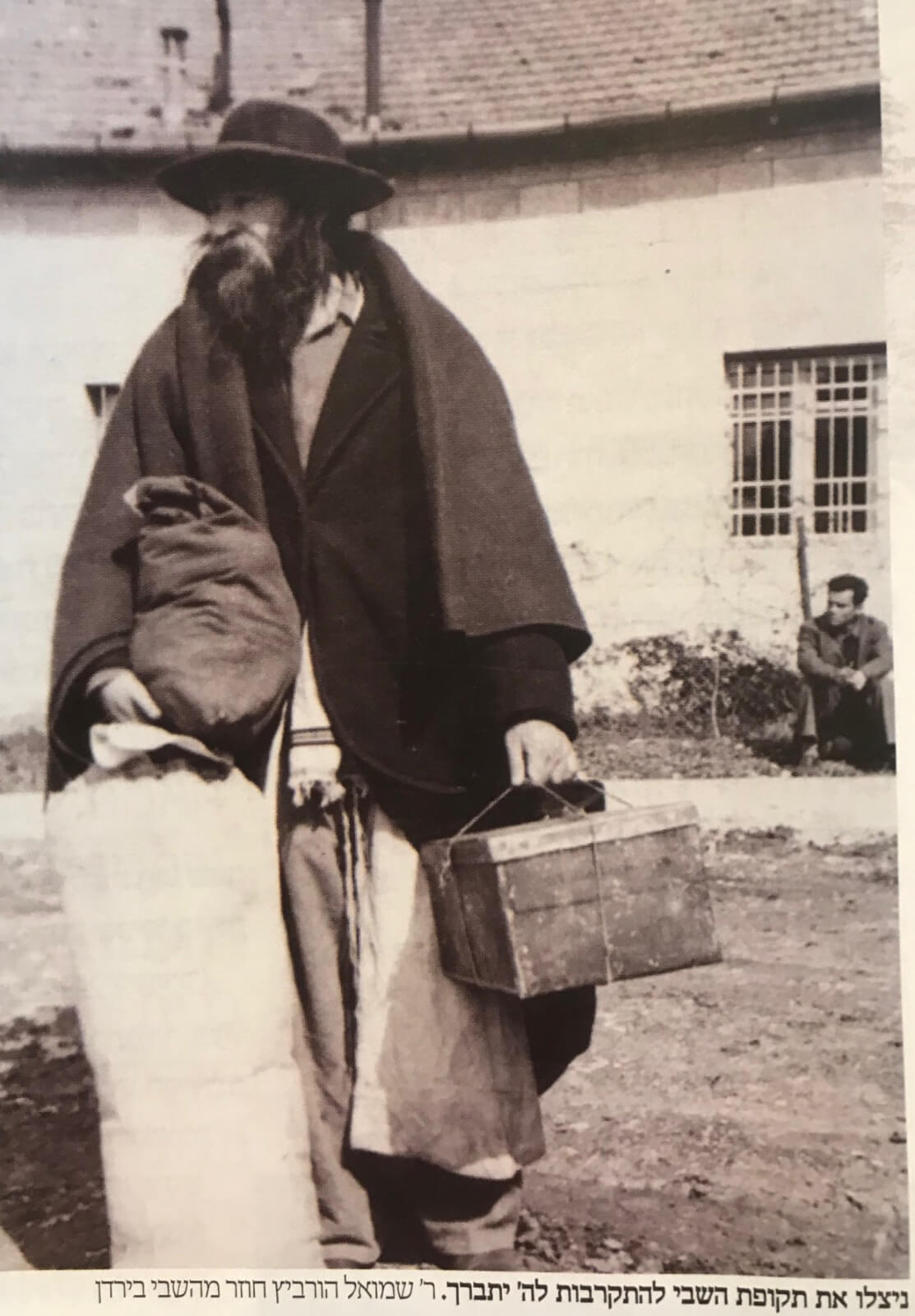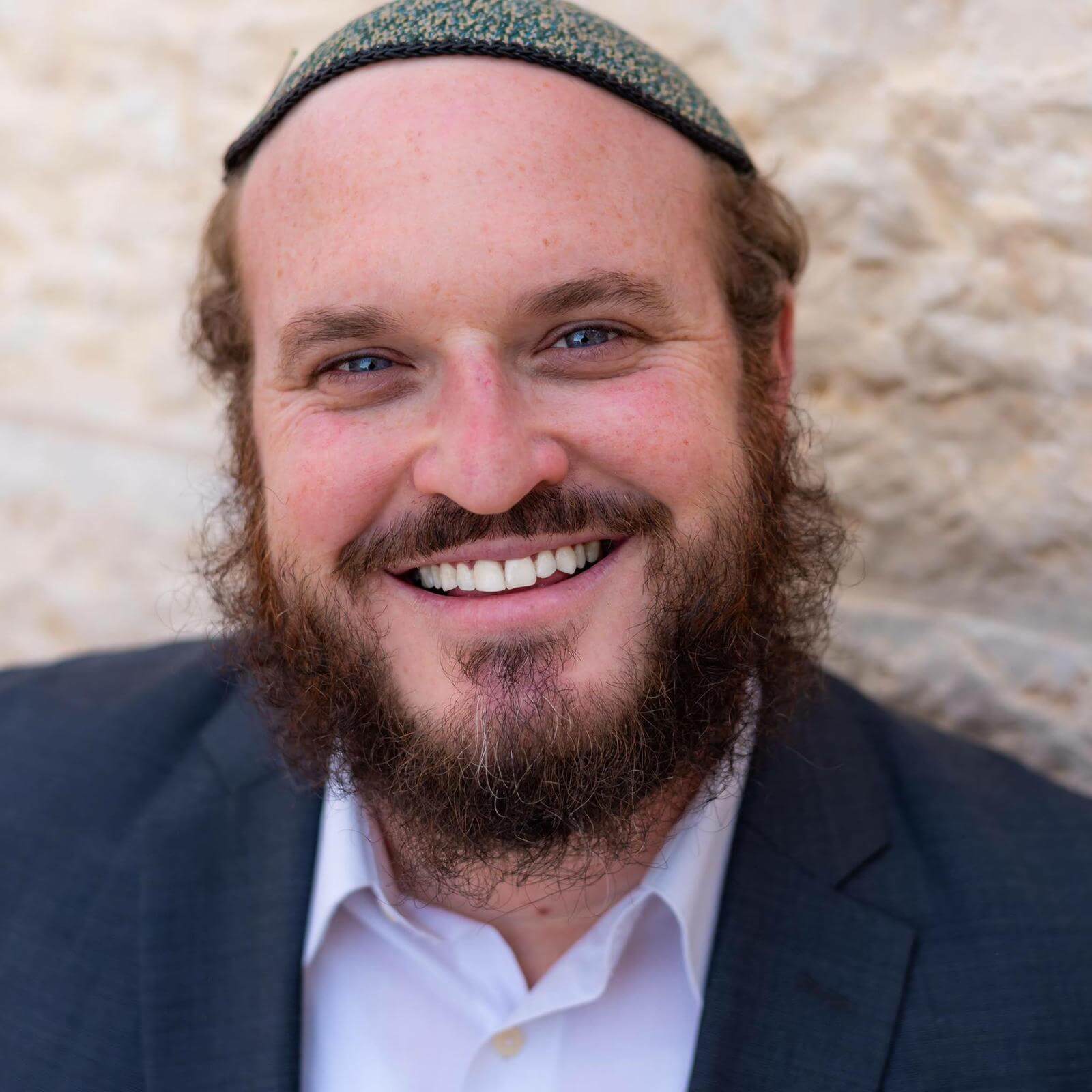Forty for Forty
Forty New Songs, In this 40th Year
The 40 for 40 Playlist
Dearest Friends,
The 22nd of Sivan, was my 40th Birthday.
My heart is filled with gratitude for all the Ribbono shel Olam has blessed me and my family with.
To each and every one you, the experiences and moments we have experienced together, have been so very meaningful.
I am filled with awe and excitement for the future.
Birthdays are a time for decisions.
In honor of my 40th birthday, I have decided that for this year, I will be releasing 40 songs.
To help make this decision and dream a reality, please contact us here:
B’ahava Rabba
B’simcha Rabba
Shlomo
1/40 Mi Ani – Shlomo Katz מי אני – שלמה כ״ץ
The Story
With tremendous gratitude and excitement, we are proud to share with you the beginning of a very special and unique musical project which we are launching this Sunday June 14th. Here is the story behind the first single being released, “Mi Ani”.
The Song
2/40 Toda – Shlomo Katz תודה – שלמה כ״ץ
The Song
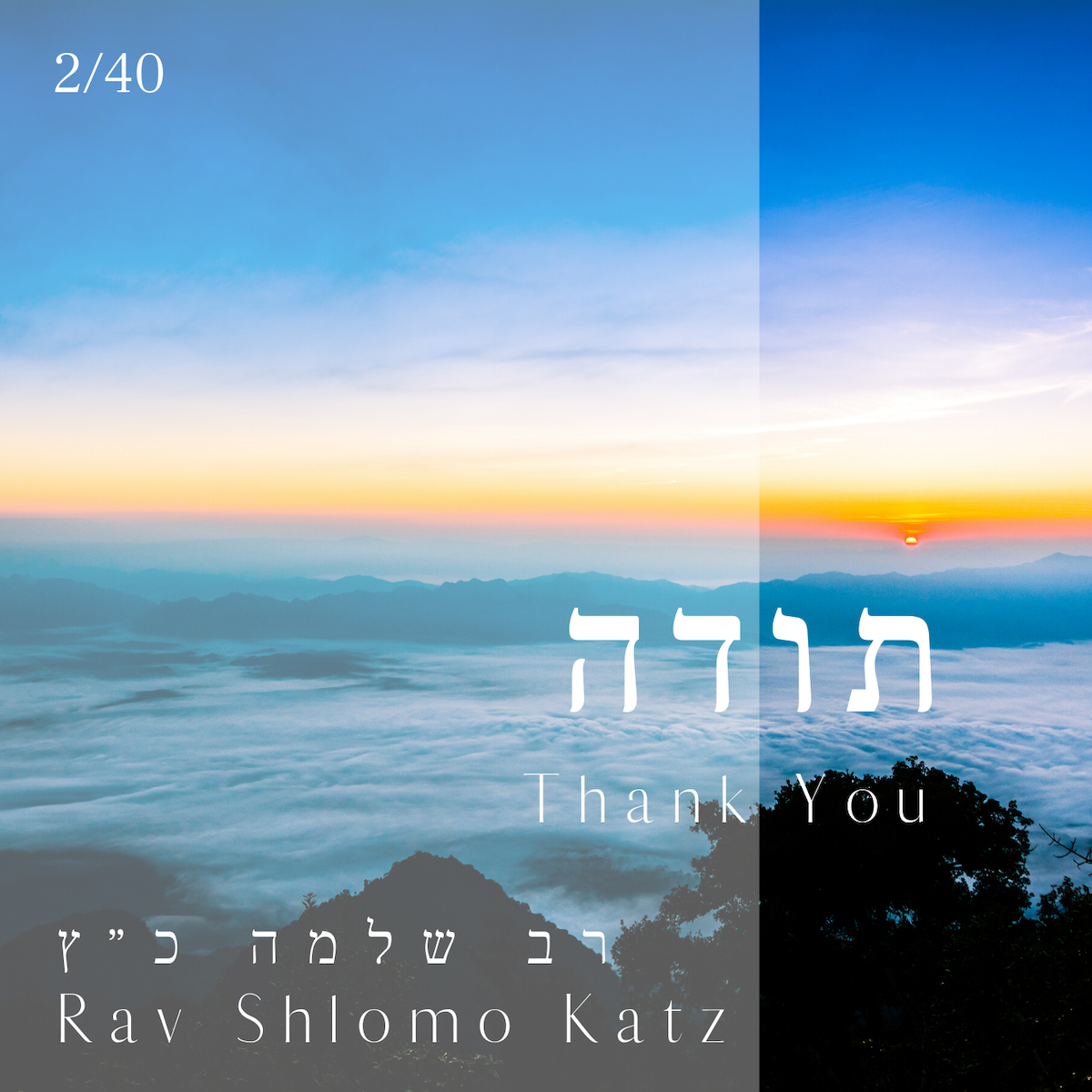
The Story
Words are usually quite limiting, but in some cases, one simple word contains within them a whole world.
“Toda – Thank You”
As I approached my fortieth birthday, my deep appreciation for such a blessed and meaningful life led me to celebrate this monumental moment in life with a real sense of gratitude . Such gratitude is happiness itself.
It is my honor to share with you the second of forty tracks, titled “Toda”.
This prayer, whose author is unknown, speaks straight to my heart ~
3/40 Behold I Am – Shlomo Katz
הריני – שלמה כ״ץ
The Story
A number of years ago, our Chabura in Efrat, the Bnei Machshava Tova Chabura, spent the summer learning the teachings of Reb Ya’akov Meir Shechter on Ahavat Yisrael. One of the pieces we learned was a whole essay on the custom of the Arizal to not begin davening without saying ‘Hareni Mekabel Alay Mitzvat Asei Shel Ve’ahavta Lere’acha Kamocha.”
Based on the 34th teaching in Likutei Moharan, Reb Ya’akov Meir was teaching us that each person carries inside, a special something that no one else has. The more I love what makes the other person special, the more that this special quality I can see and love in them begins to appear and shine brightly in my own life too. When we begin to pray and actively choose to love all those with whom we are praying, that sense of love and oneness causes the gates of prayer to open wide.
As a result of being so deeply affected by this teaching, I was davening to compose a melody for these powerful words from the Arizal. A number of weeks after we learned this piece, I was driving home from a performance, and this niggun came down. Since then, we begin every Shabbos morning in our shul with this niggun. In fact, this phrase is the only thing hanging on the walls of our shul.
A number of months later, we visited Reb Ya’akov Meir Shcheter, and had the privilege of singing him the niggun he inspired within us. May we all merit to connect to this energy and open the gates of tefillah and of our own hearts.
The Song
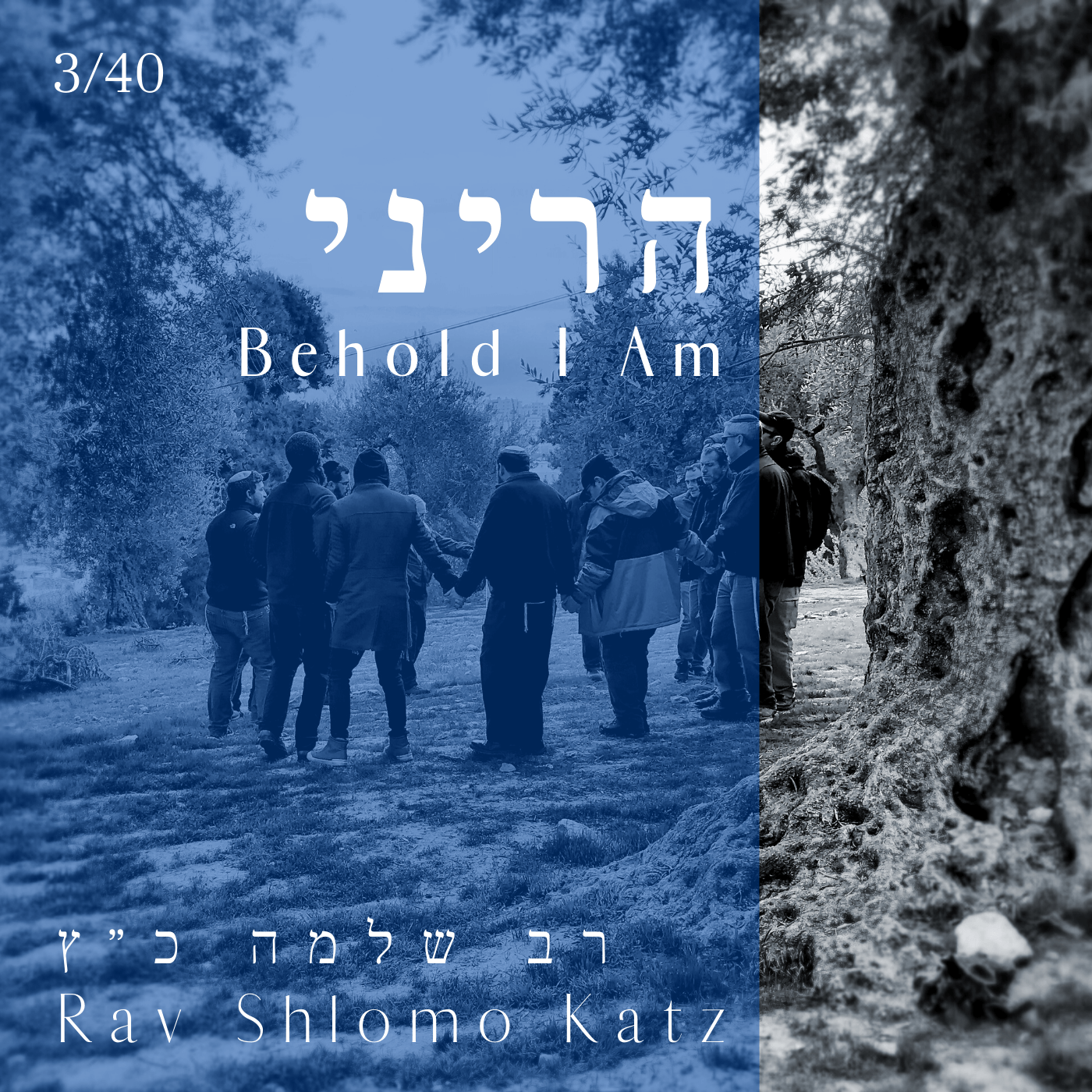
Behind the Scenes
Sponsored by the Rickman Family
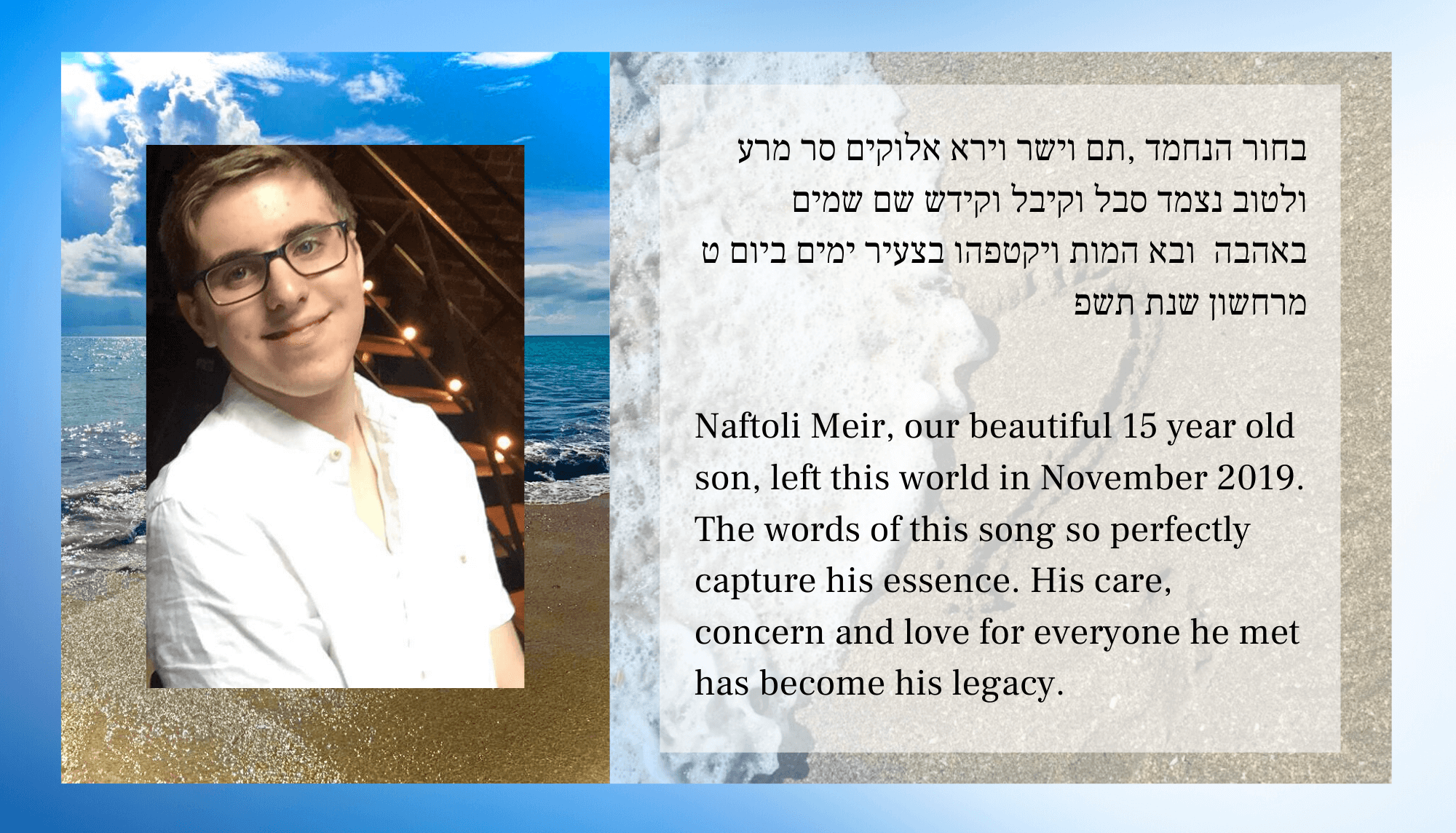
4/40 Anapoli – Shlomo Katz
אנאפולי – שלמה כ״ץ
The Song

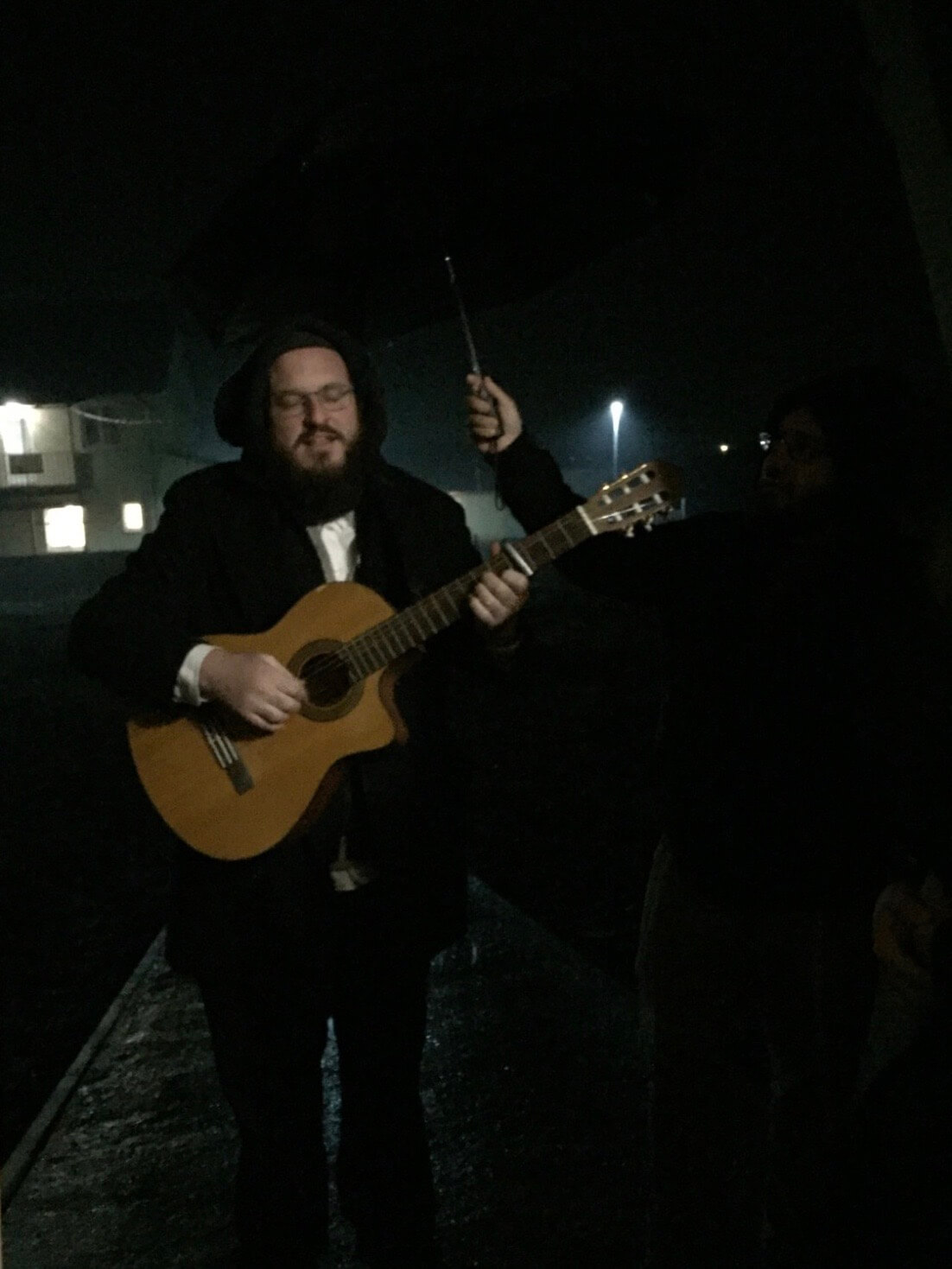
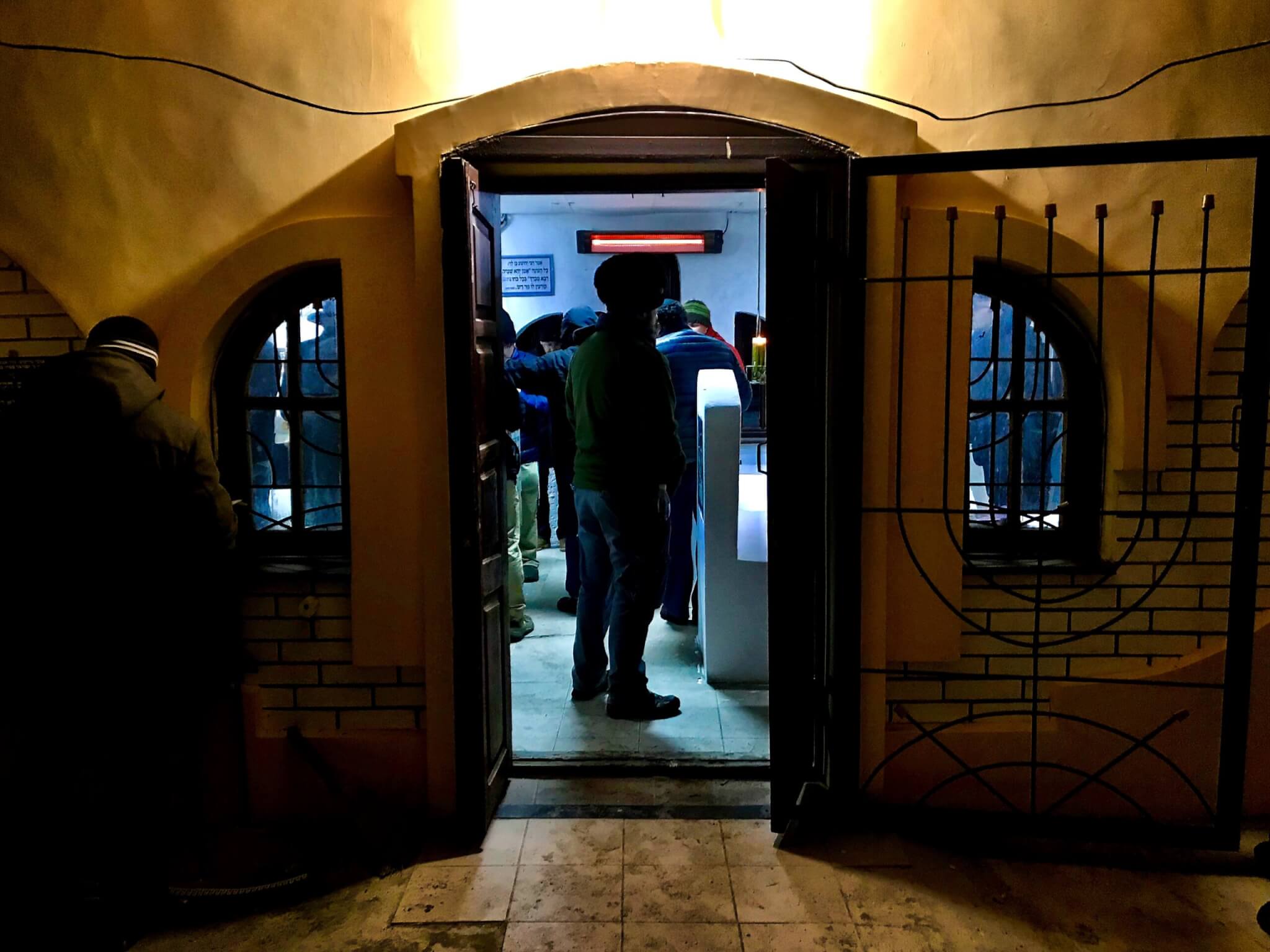
The Story
Approximately seven years ago, we began our soulful trips to the Ukraine. These trips have a dynamic of their own, which is hard to put into words. The hours on the bus together forge intense bonding and even though we barely sleep, we somehow have more energy than usual.
The one thing that was most challenging for me personally when we first started these trips is the fact that I am a Kohen. Other than in Uman with the special way they have the ohel set up, I can’t really get close to any of the kivrei tzaddikim we visit. After a few years of these pilgrimages, however, I began seeing the upside of being a kohen on our journeys. After hours of being on the bus together, I began to truly appreciate the times when everyone would get off to go into the resting place of the tzaddik we were visiting and I would have to bus to myself. This alone time was very much needed and so it became very precious and very special.
But there was one spot where it really hurt.
The first time we visited Anapoli wasn’t simple. In the ancient cemetery in Anapoli rest the Maggid of Mezritch and the Rebbe Reb Zusha. When the bus dropped us off it was pitch black (although only around 5pm), freezing, muddy and raining. It took us quite some time to locate the ohel of these two tzaddikim. Once we found it, though, and all of the chevre had gone in, I was left outside alone in the cold rain with a guitar strapped to my back. I could hear the singing and dancing inside getting more and more intense. Jealousy and guilt began to take hold of me- jealousy for wanting to be inside and Kohanic guilt for wanting such a thing.
“I’m sure it’s all good, and it’s all worth it, but Ribbono Shel Olam, I want to be part of the fire that my friends inside are tuning into.”
I decided to grab the guitar and to pour out my heart.
As the niggun came down, it seemed like we all knew it. One by one, the chevre came to where I was standing. We must have sung and danced to this niggun for another forty-five minutes.
I have tried putting a number of different pesukim to this niggun…but it remains beyond words.
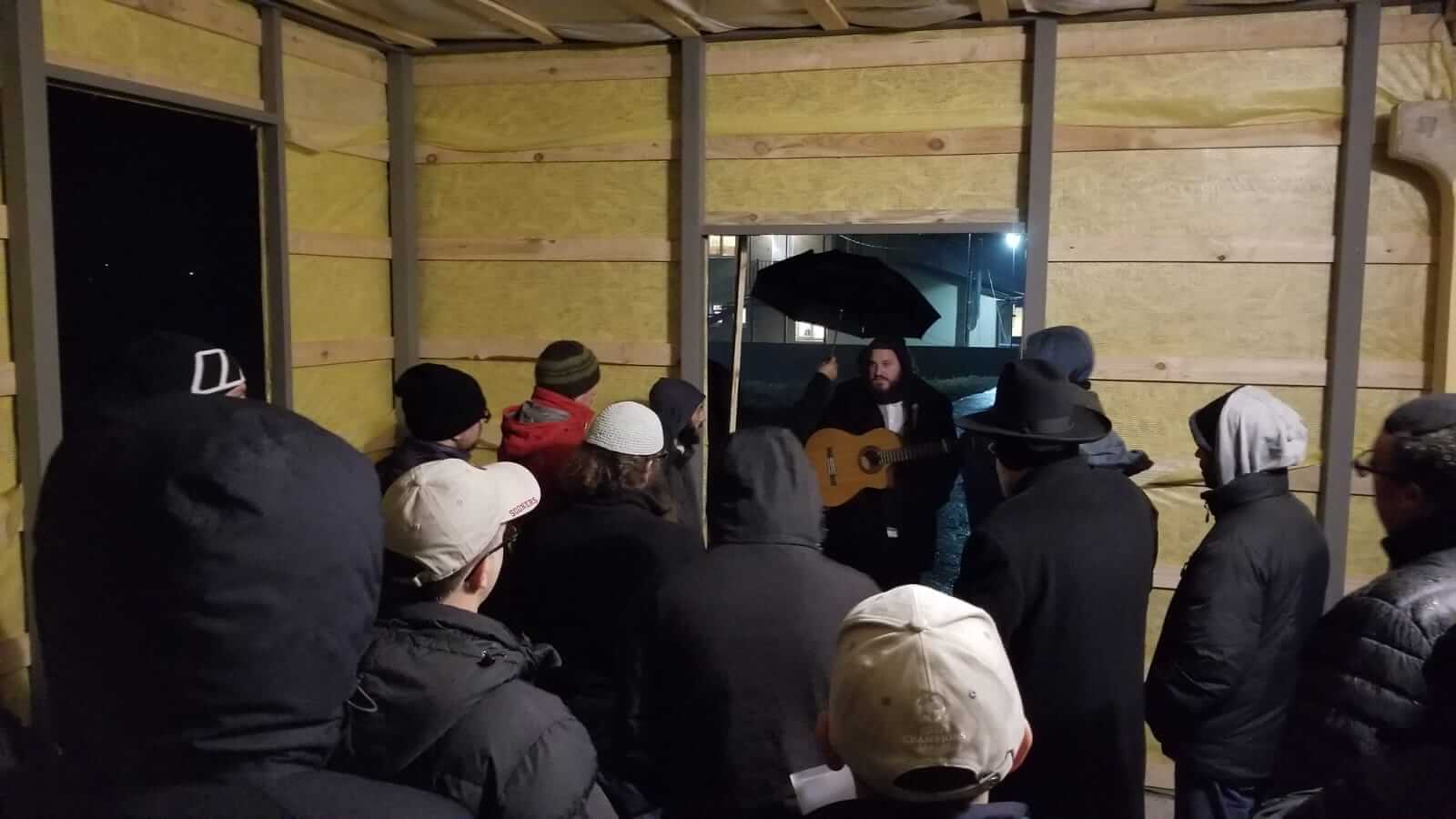
Sponsored by Tehila & Jeremy Gimpel
This nigun accompanied us and our six children on the biggest move of our lives as we left Neve Daniel to establish the Arugot Farm. For us, this was the Nigun of walking after Hashen into the unknown.
Thank you Reb Shlomo… Looking forward to the next 40!
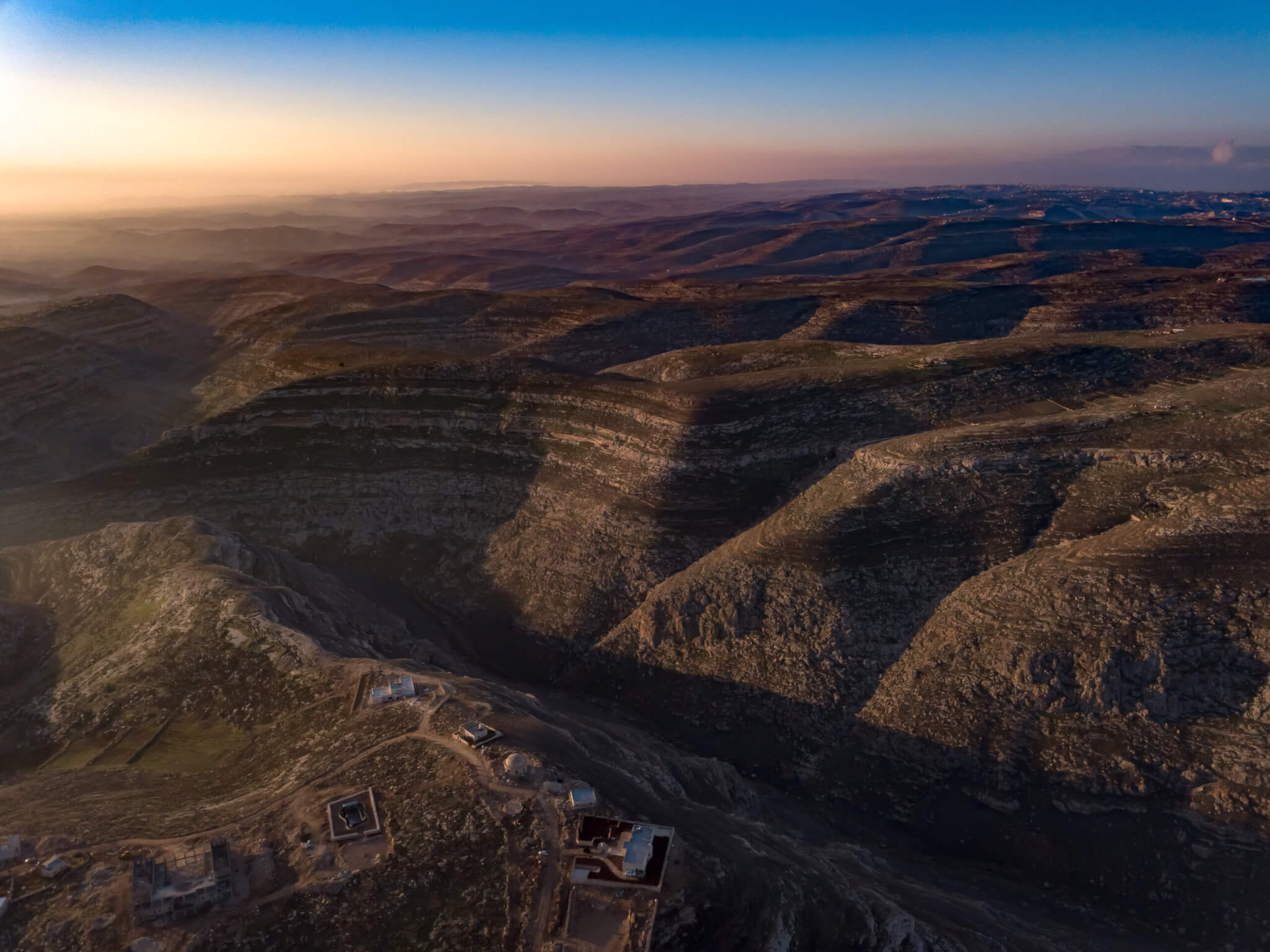
Photo by Joshua Fleisher
5/40 Uman – Shlomo Katz
אומן – שלמה כ״ץ
The Song
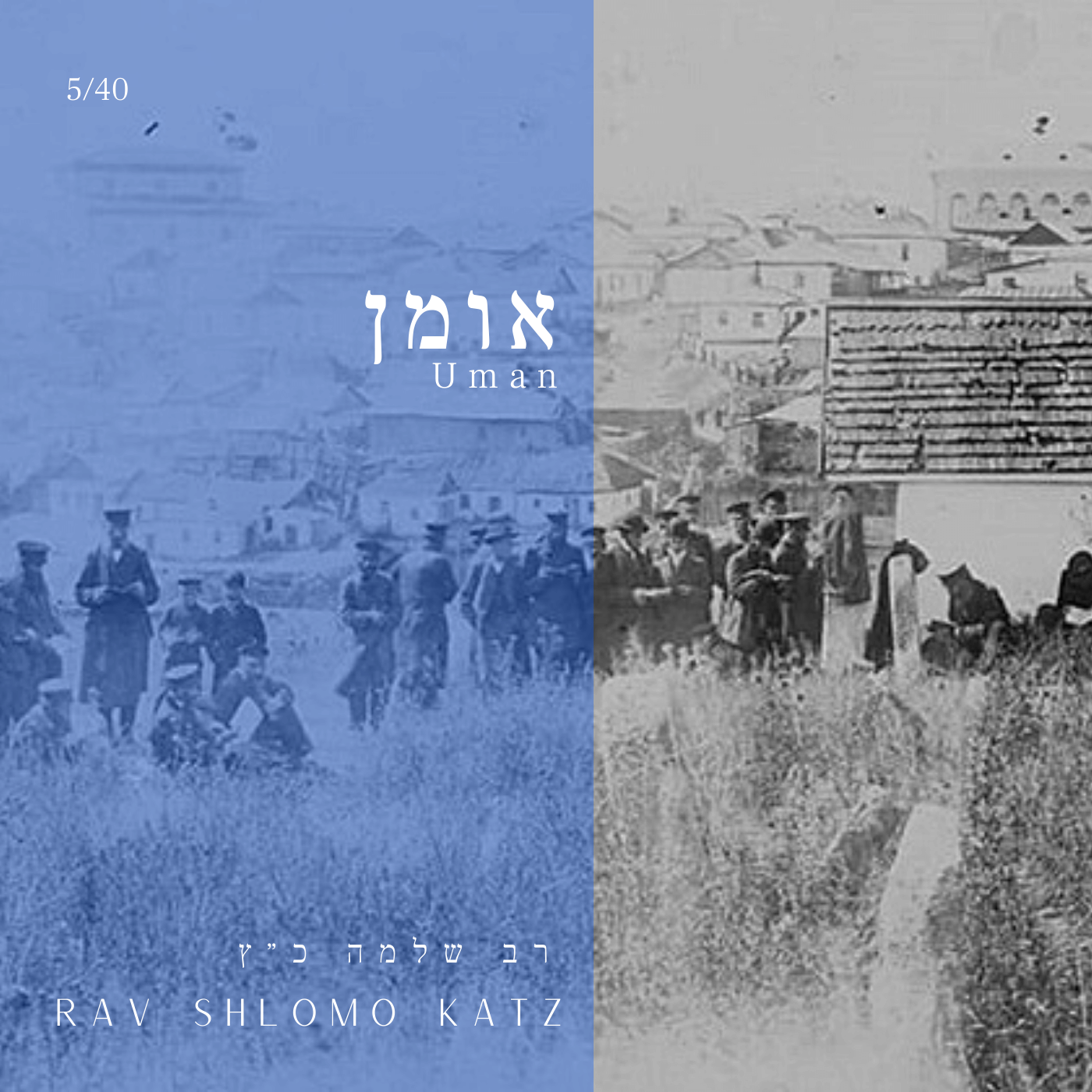
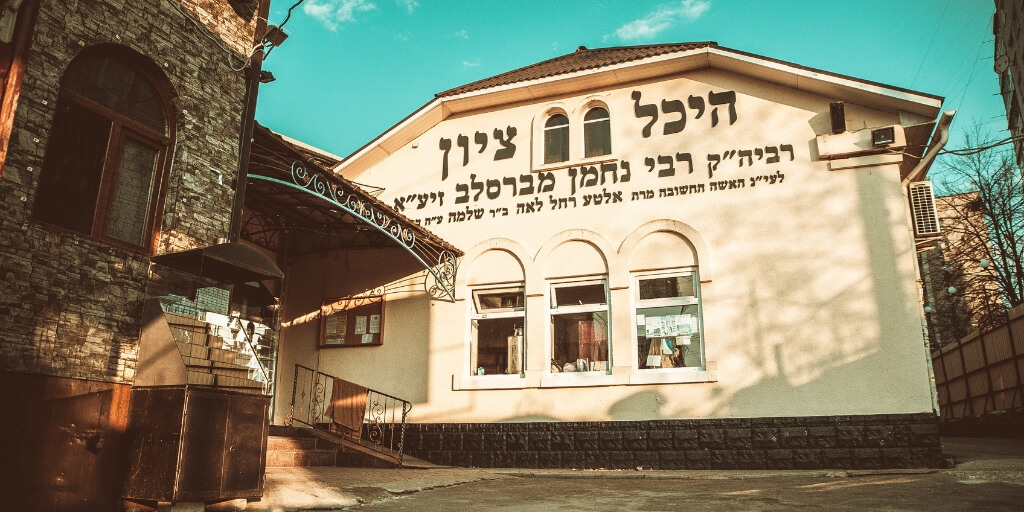
The Story
What happens in Uman stays in…… your heart, forever. But it may not seem like that at first.
From all the sites we visit throughout our trip to Ukraine, Uman is by far the most confusing.
The scene there is hard to put in words- it is filled with Jewish people, souls looking for connection, throughout the whole year not just on Rosh Hashanah. There is even a Jewish community there numbering in the hundreds.
Rebbe Nachman’s burial spot itself is now in the middle of a large structure, a structure that makes it quite difficult to understand what the site was like in Rebbe Nachman’s time.
A number of years ago, one of our trips took place on Rosh Chodesh Nissan. After a very long day which began in Medzhibush, continued in Breslov, and ended off in Uman, there were plenty of emotions and a lot to digest. I found myself back at Breslov Research Institute headquarters, sipping on some tea and sitting with one of my dear friends and teachers, Rabbi Avraham Arieh Trugman. Rabbi Trugman had come on the trip with us and it was a very special treat for me, as our families have been close for many years. Rabbi Trugman is a well known author and teacher. He has also put out a number of beautiful music albums in which I have been privileged to take part. One of the main differences in our style of music is that most of Rabbi Trugman’s niggunim are in a major key, whereas most of mine are in a minor key.
After such a long day, all I wanted to do was feel calm in the heart and peaceful in the mind, but Uman presses on certain buttons. I was sitting and struggling with specific elements of what was going on in present day Uman when I remembered one of Rebbe Nachman’s teachings, one which has always pushed me to go beyond myself- Ikkar Avodas Hashem Bitmimus Ubepshitus. The most important part of serving G-d must be with simplicity and purity. In that moment, I understood that this means exercising my free will by chucking away all barriers and stumbling blocks that consume the heart and mind, and serving Hashem beyond that place.
And at that moment, with that understanding and while sitting next to Rav Trugman, this niggun, which is in the key of major, came down and brought everything together.
This melody always brings me back to a place of calm, to a place of rest, to a place, simply, of faith.
Anonymously Sponsored in Honour of
Rabbi Moshe Weinberger
For all he has done to bring the teachings of Rebbe Nachman of Breslov to the hearts of so many
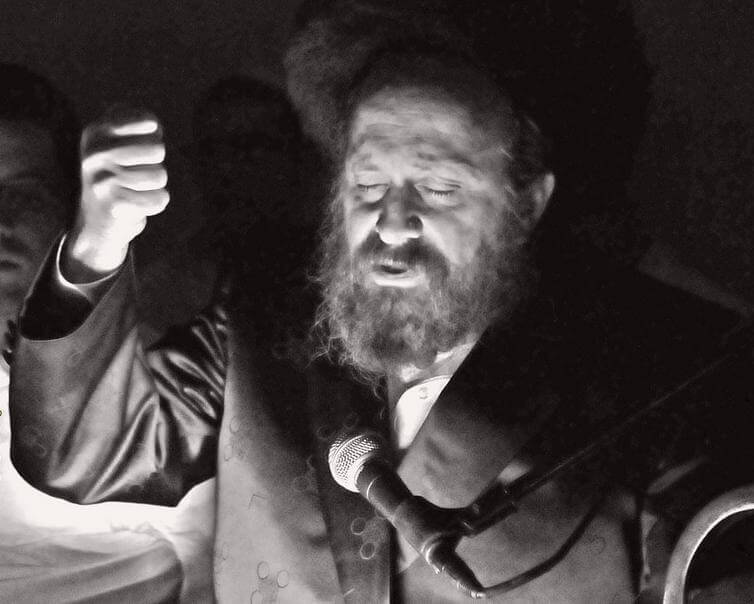
6/40 Lev Tahor – Shlomo Katz
לב טהור – שלמה כ״ץ
The Story
Sometimes a niggun comes down all at once. Sometimes it comes down in pieces- months or even years apart.
The second part of this niggun came down at the Amster shabbos table in West Rodgers Park, Chicago, in November 2018.
It wasn’t until a year and a half later, during ma’ariv at Yeshivat Lev HaTorah, right before singing with the beautiful chevre there, that the first part came down.
That night we sang this niggun for the first time. We sang it over and over until it was embedded in our hearts.
This niggun is dedicated to the beautiful Amster family, as well as Talmidei Yeshivat Lev Hatorah, whose Lev Tahor is a constant inspiration of hitchadshut (renewal).
B’ahava Rabba and with blessings for all of us to tune into the renewal of spirit that we so long for.
Shlomo
The Song
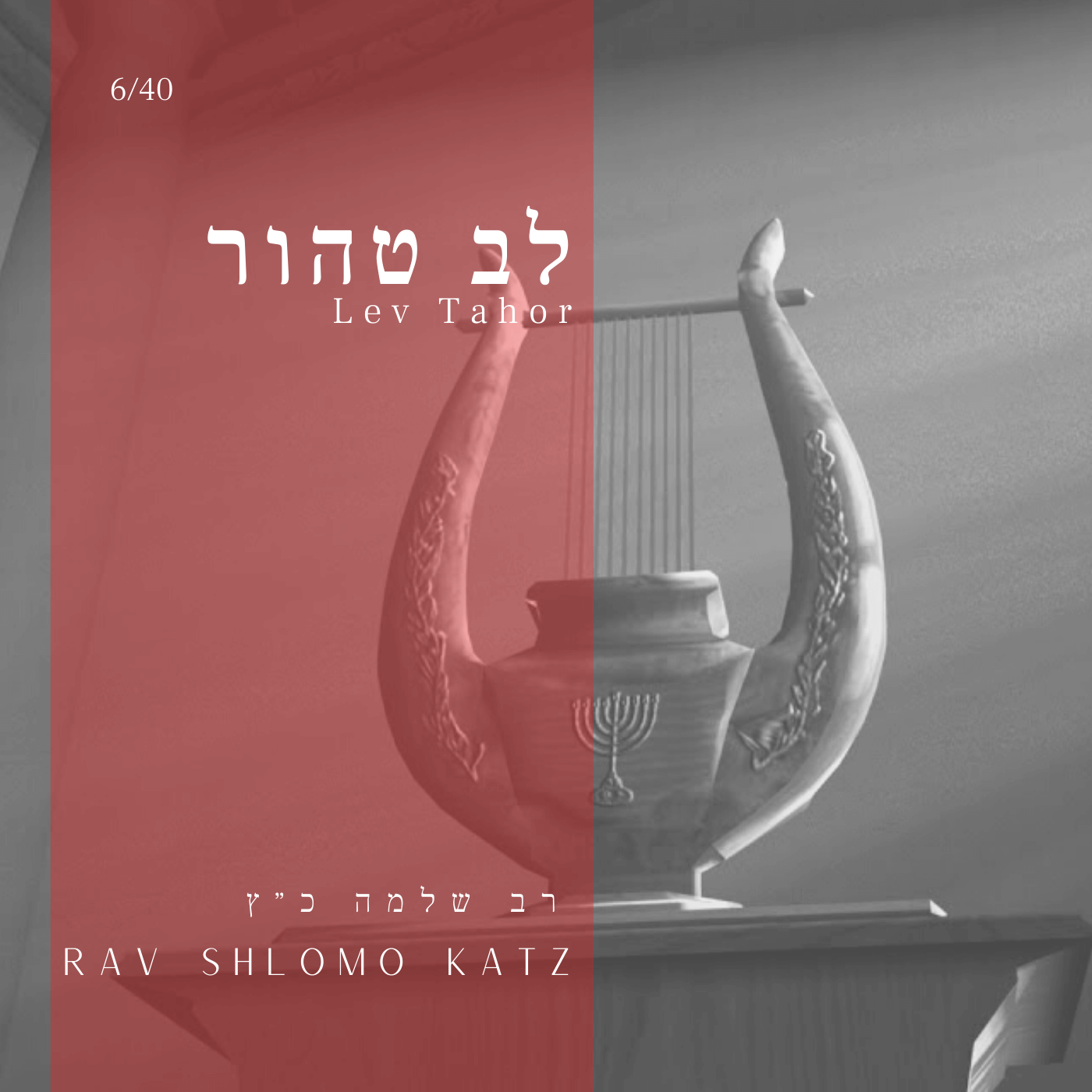
Anonymously Sponsored in Honor of
Reb Shmuel HaLevy Horowitz
For his inspiration to follow his heart and become who he needed to be in his lifetime with full emuna.
